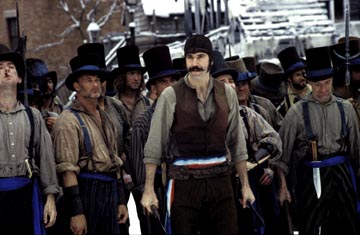 Brendan Gleeson seems like an easy guy to underestimate. Yet, his snarl can be as furious as his slow yet subtle comic timing. It is this element of surprise that makes him such a vital, unforgettable part of “The Guard.”
Brendan Gleeson seems like an easy guy to underestimate. Yet, his snarl can be as furious as his slow yet subtle comic timing. It is this element of surprise that makes him such a vital, unforgettable part of “The Guard.”
In “The Guard,” Gleeson plays Sergeant Gerry Boyle, the only uncorrupt cop in a small Irish town where most of the residents speak Gaelic, pub visits are routine, and murder and drug rings usually aren’t recurrent. That is, until the day Gerry investigates a car crash that leads him to a huge shipment of cocaine into the country. The FBI comes to investigate, and Gerry is teamed up with the more traditional Wendall (Don Cheadle) to break up the drug ring. Wendall comes from a privileged midwestern African American family. Gerry gives off the notion that he’s never been within ten feet of a black person in his life. “I’m Irish. Racism is part of my culture,” Gerry quips. This certainly is not the immediate start of a beautiful friendship.
Make no mistake, “The Guard” is not some social commentary against racism. Ignorance is simply a part of its humor. It’s funny not just because Gerry has such a warped perception of other races, but because he can’t even get his racial stereotypes straight.

Yet, even in his meanest, most unaware moments, Gerry is never a detestable character in the slightest bit. In a position like he is in, his unenlightened views can only hide an immeasurable amount of brains.
“The Guard” works like most comedies today don’t by never dropping a joke. Every punchline, every small scene in a means of leading to another joke later on. You didn’t think those prostitutes were for nothing, did you?
“The Guard” is written and directed by John Michael McDonagh. He is the brother of Martin McDonagh, the theater and screenwriter who made “In Bruges” (which, probably not coincidently, Gleeson also starred in). John took some notes from his brother’s style and incorporates that same pitch black humor, self-awareness, and ambiguity that made “In Bruges” a modern classic. “The Guard” doesn’t exactly reach the life-pondering depth of “Bruges” but it nearly achieves the sly mystery of that film in its ending.
In their efforts, the two brothers have created what can be defined as the Irish lifestyle and humor. The lives of both cops and criminals revolve around the happening of the pub. This is their version of a coffeehouse. That is, a coffeehouse where people can drunkenly embarrass themselves as well as share ideas. Irish men also seem to come with preconceived perceptions of others, as well as street smarts. These traits may be defined both by the rural landscape in which they inhabit, and the unholy amount of Guinness and whiskey that they drink.

Like “Bruges,” “The Guard” ends up being both a fish-out-of-water and a buddy comedy. “The Guard” is a film that rewards those who wait and by the end their partnership isn’t just a means of solving this crime; it has involved into a full-fledged unorthodox friendship. Those are truly the best friends you can find in life: the ones that are nothing like you and yet in those differences, you find something you can hinge on to.
“The Guard” plays as a crime thriller comedy with a straight face almost the whole way through. Unlike say, “Hot Fuzz” this is not a giant sendup on the action movie genre. It seems more of a tribute to how hilarious it can be to step away from all PC boundaries. However, it does go meta for a moment, when a character suggests this story become a movie. Going meta is never a bad touch.
Despite being a comedy, “The Guard” does right in not going for the easy ending. I won’t say what it is, but all I will say is that you are not dumb if you can’t figure it out. Either way that it could go would make sense for completely different reasons. Either way it is definitely life affirming.
When they first meet, Wendall says to Gerry, “I can’t tell if you’re really fucking dumb, or really fucking smart.” Besides the hilarious racism, that’s what makes Gerry so memorable: perhaps he is a little bit of both.
I don’t normally impose upon my readers to see a movie. But this has been a particularly weak summer for movies. If “The Guard” is playing in a theater near you, you’d be really fucking dumb not see it.


